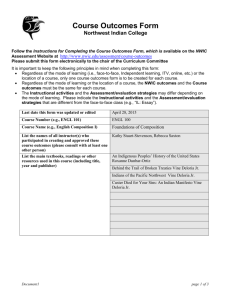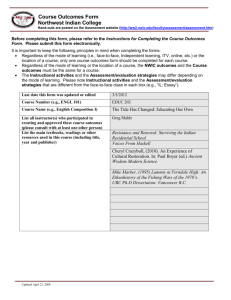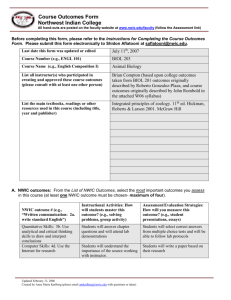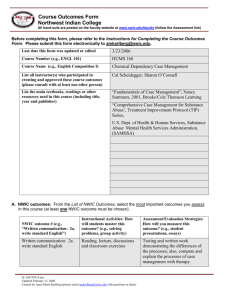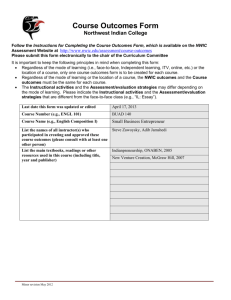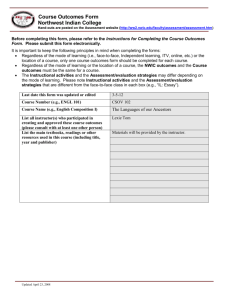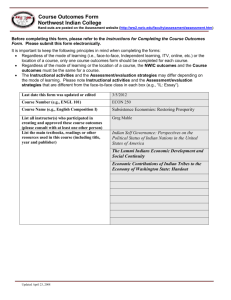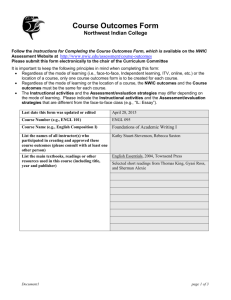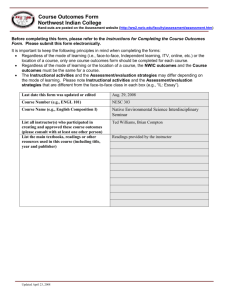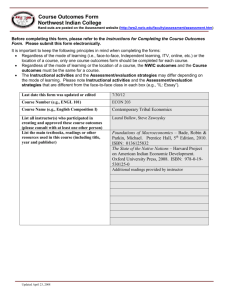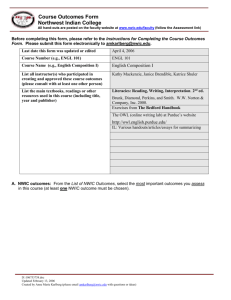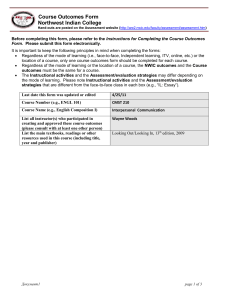ECED 210 - Northwest Indian College
advertisement
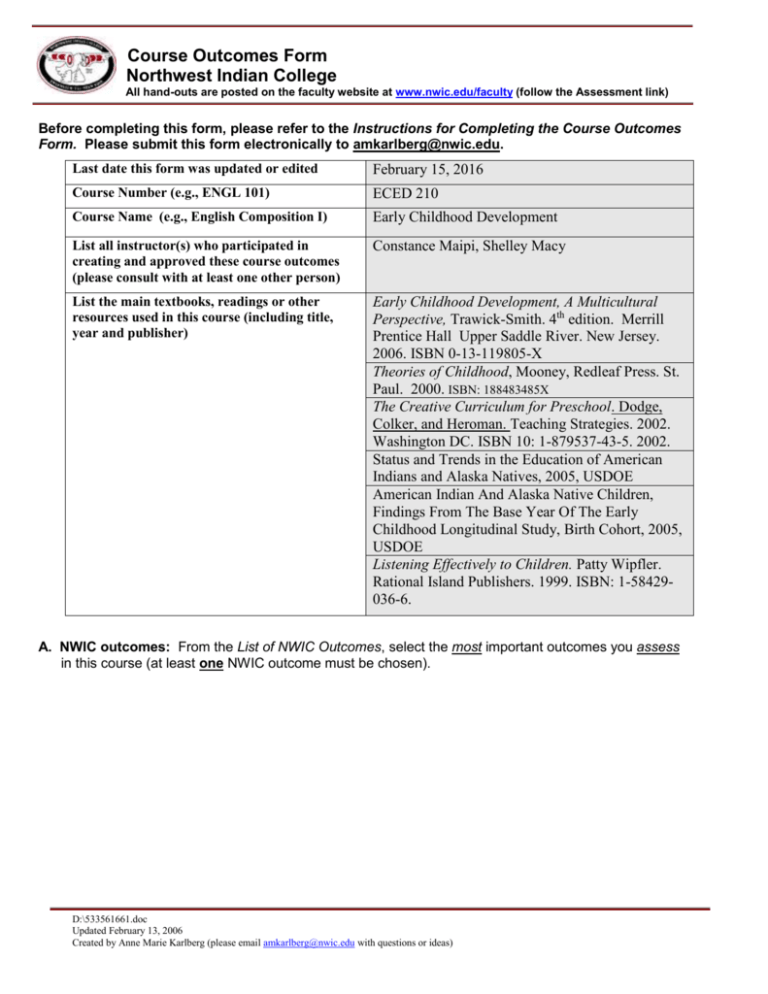
Course Outcomes Form Northwest Indian College All hand-outs are posted on the faculty website at www.nwic.edu/faculty (follow the Assessment link) Before completing this form, please refer to the Instructions for Completing the Course Outcomes Form. Please submit this form electronically to amkarlberg@nwic.edu. Last date this form was updated or edited February 15, 2016 Course Number (e.g., ENGL 101) ECED 210 Course Name (e.g., English Composition I) Early Childhood Development List all instructor(s) who participated in creating and approved these course outcomes (please consult with at least one other person) Constance Maipi, Shelley Macy List the main textbooks, readings or other resources used in this course (including title, year and publisher) Early Childhood Development, A Multicultural Perspective, Trawick-Smith. 4th edition. Merrill Prentice Hall Upper Saddle River. New Jersey. 2006. ISBN 0-13-119805-X Theories of Childhood, Mooney, Redleaf Press. St. Paul. 2000. ISBN: 188483485X The Creative Curriculum for Preschool. Dodge, Colker, and Heroman. Teaching Strategies. 2002. Washington DC. ISBN 10: 1-879537-43-5. 2002. Status and Trends in the Education of American Indians and Alaska Natives, 2005, USDOE American Indian And Alaska Native Children, Findings From The Base Year Of The Early Childhood Longitudinal Study, Birth Cohort, 2005, USDOE Listening Effectively to Children. Patty Wipfler. Rational Island Publishers. 1999. ISBN: 1-58429036-6. A. NWIC outcomes: From the List of NWIC Outcomes, select the most important outcomes you assess in this course (at least one NWIC outcome must be chosen). D:\533561661.doc Updated February 13, 2006 Created by Anne Marie Karlberg (please email amkarlberg@nwic.edu with questions or ideas) NWIC outcome # (e.g., “Written communication: 2a. write standard English”) Written Communication: 2a. write standard English Oral Communication: 3b. apply interpersonal communication skills Instructional Activities: How will students master this outcome? (e.g., solving problems, group activity) Assessment/Evaluation Strategies: How will you measure this outcome? (e.g., student presentations, essays) Students will be given group and individual writing activities. Student will be provided opportunities to work in small groups. Direct observation, completion of short answer exams, observations logs, and at least one essay. Role playing, oral presentations to small and large groups. Implementation of active listening skills through the use of observation logs. B. Course outcomes: In order of priority, list the most important other learning outcomes for this course that you assess (a maximum of 8). Other course outcomes: Complete the sentence – As a result of this course, students will be able to… Differentiate between the tenets of at least four major theories of child development. Apply at least two theories of child development in the direct observation of a child. Critique the applicability of a theory to the individual child. Identify at least three integrated contexts for child development. Recognize their own latent knowledge and beliefs of child development. Justify the integration of formal theories with their personal beliefs of child development. Instructional Activities: How will students master this outcome? (e.g., solving problems, group activity) Assessment / Evaluation Strategies: How will you measure this outcome? (e.g., student presentations, essays) Direct observation of a child(ren), group activities. Observation logs and short reaction essays, group discussion, and exams. Observation logs. Role-playing, video presentations. Role-playing, video presentations, group activities and discussion. Group activities, presentation of current research, and reading of text. Role-playing, group discussion, and direct observation of a child(ren). Role-playing, group activities and discussion, and reading of text. D:\533561661.doc Updated February 13, 2006 Created by Anne Marie Karlberg (please email amkarlberg@nwic.edu with questions or ideas) Reaction essays, group discussion and exams. Student essays, group discussion and exams. Group and individual discussion, student essays, written observations. Group and individual discussion, student essays, written observations.
